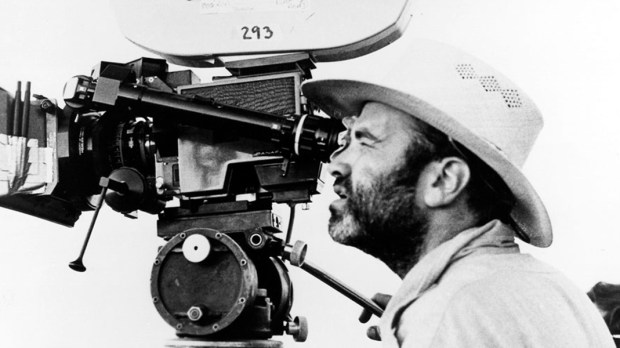“What does Christ want from us?”
According to Martin Scorsese, Terrence Malick posed this question to his fellow director in a letter after seeing Silence, the former’s long-awaited film about Jesuit missionaries in Japan.
Malick’s cinematic corpus has been marked by Christian themes, music, and imagery from the beginning. For example, those watching
from Badlands (1973) with the English captions on will see the following lyrics from German composer Carl Orff’s choral piece “Passion”:When Jesus walked into the garden
And his suffering began
Everything mourned that was there
Even the foliage and the green grass:
Mary held a small bell, ringing
“Oh my, oh my darling child
Oh how, oh how my heart is breaking
My son, my son, I am losing you”
Mary went to the Cross
She saw her dear child hanging before her
There he was hanging on a cross
Mary’s heart was in pain
But especially since the 2011 release of his magnum opus The Tree of Life, which was acclaimed by Roger Ebert as one of the ten greatest films ever made, Malick has unapologetically explored the mysteries of creation and death, sin and grace, and suffering and resurrection. His most recent film, A Hidden Life—broadly acclaimed by critics at Cannes, and slated for an awards-season release date of December 13—is a biopic about Blessed Franz Jägerstätter, an Austrian farmer and family man executed for refusing to fight for the Nazis in World War II and beatified by the Catholic Church in 2007.
But if recent reports are accurate, Malick’s question to Scorsese might be reflective of a new, even more explicitly Christian direction.
The filmmaker has reportedly been shooting a new film titled The Last Planet, which “narrates various passages in the life of Christ, with the representation of evangelical parables.” One Italian website captured on-set images of “a man with a donkey” approaching “a sort of face in the sand” in the coastal town of Lazio, and quoted one person on set as saying that “the film is about humanity, starting from the Big Bang to the Apocalypse.” There are not a lot of other details available at this point, except that Malick has apparently been shooting around Rome as well as Iceland (a shooting location for The Tree of Life and Voyage of Time), and that actors Ben Kingsley and Björn Thors have been spotted on set.
It’s impossible to say what this “life of Christ” will be like, especially given Malick’s notoriously unpredictable editing process. And if and when the film does release—which may not be for years yet—the reclusive director will likely offer little in the way of explication.
But my hope is that The Last Planet might mark a definitive shift in our shared cultural understanding of a “Christian movie.” For decades now, those producing and making Christian movies have fallen into the artistic trap described by Flannery O’Connor in her essay “Novelist and Believer”:
Ever since there have been such things as novels, the world has been flooded with bad fiction for which the religious impulse has been responsible. The sorry religious novel comes about when the writer supposes that because of his belief, he is somehow dispensed from the obligation to penetrate concrete reality. He will think that the eyes of the Church or of the Bible or of his particular theology have already done the seeing for him, and that his business is to rearrange this essential vision into satisfying patterns, getting himself as little dirty in the process as possible.
Rather than penetrating concrete reality, today’s bad religious movie offers pre-packaged moral platitudes; rather than offering a new and compelling religious vision, it shuffles around well-worn religious themes; and rather than getting dirty in the mystery of the world, it hovers above it in a haze of soft-focus sentimentalism. Malick’s films, on the other hand—to the frustration of his detractors, and to the delight of his fans—are stubbornly concrete, visionary, and mysterious. He offers a deeply phenomenological look at “the things themselves,” and a deeply sacramental exploration of God’s presence in those things.
Whatever The Last Planet is or becomes, it will—God willing—captivate eyes and ears, compel hearts, and convert souls to the reality of Christ.

